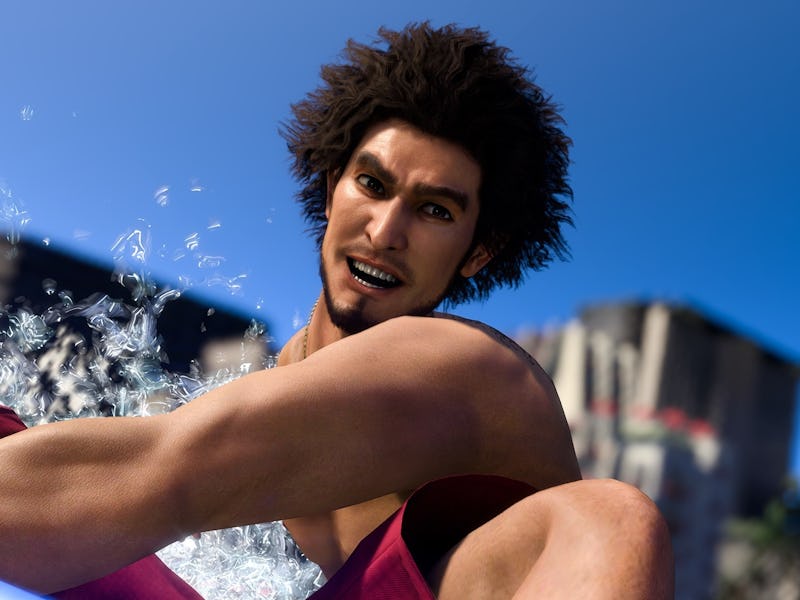The Yakuza Series Desperately Needs a Break
Time for re-evaluation.

Like a Dragon: Infinite Wealth is undoubtedly one of the best Yakuza games ever made, a fantastic encapsulation of the series’ brilliant fusion of wacky humor and crime drama. Infinite Wealth refines the Yakuza formula to a high sheen, but it also makes it abundantly clear that said formula is starting to show wear and tear. The last three years have seen Sega’s cult classic franchise explode in popularity, and while that’s not a bad thing, the sheer amount of content coming from the series is overwhelming. It might be time for Ryu Ga Gotoku studio to take a step back, and examine what the Yakuza series wants to do with its newfound popularity.
RGG Studio has essentially mastered the art of reusing assets, somehow managing to make every Yakuza game feel unique, despite each new release largely taking place in the same setting with recurring characters. It’s astounding how the studio manages to inject so much diverse personality into each games’ selection of mini-games, side quests, and optional activities. That’s abundantly clear in Infinite Wealth with the Animal Crossing-inspired Dondoko Island. And yet, it can only go so far.
Infinite Wealth’s Hawaii setting brings a gorgeous new visual style, but still packs in a lot of familiar activities.
There have been changes to Yakuza over the years, namely the turn-based combat of the seventh game, but the structure has largely stayed the same. Over nearly ten entries we’ve used the same semi-open world format, sub-story structure, and largely similar chapter layout for each game. As much as I love Infinite Wealth, I find myself wondering how RGG Studio can push the formula any further. The answer likely lies in a more drastic redefinition of what it means to be a Yakuza game.
This last year alone has seen the release of three Yakuza games: Like a Dragon Ishin, Like a Dragon Gaiden, and Like a Dragon: Infinite Wealth. But in the two years before that, we also saw Yakuza: Like a Dragon and Lost Judgment. With the exception of Gaiden, these are all games that take at least 50 hours but can easily slip into 100-plus hours with side content.
That’s a tall task for fans who have stuck with the series for years, but it’s starting to look harder and harder for anyone to get into the series. A lot of the narrative heft of Infinite Wealth relies on knowledge of past games, and at the very least fans should be familiar with Yakuza: Like a Dragon. While that’s honestly not a great starting point, I have a hard time telling someone they have to play four or five other long games beforehand. That’s a problem if Sega wants to continue building off of Yakuza’s surging success.
Judgment has a lot in common with Yakuza, but its mystery-fueled story felt like a breath of fresh air.
Franchise fatigue is a thing we’ve seen time and again. Just look at the fall of series like Tony Hawk’s Pro Skater and Guitar Hero. Even big series like Assassin’s Creed have seen their success wane as a lack of change and innovation makes fan’s interest wane. There are plenty of other examples outside of gaming too, with the seemingly never-ending stream of Marvel and Star Wars projects, which continue to draw similar complaints. Yakuza has managed to do a great job of keeping fans invested, and drawing new ones, but you can only do the same thing for so long.
RGG Studio is unarguably a talented development team, but some of its best ideas have come from taking wildly ambitious swings, an approach that it could really use right now. Judgment took a mystery approach to storytelling and it paid off, Like a Dragon’s turn-based combat reinvigorated the series, and even the overlooked Binary Domain remains one of the most unique shooters out there.
Infinite Wealth finally brings Kiryu’s long story to and end, creating the perfect opportunity to redefine the franchise.
The studio consistently maintains a degree of quality with the Yakuza series, but it’s tantalizing to think about what the studio could accomplish when given the chance to try something truly new and ambitious. Getting to work on a new idea could, in turn, lead back to improving Yakuza as a whole.
There’s a sense of finality to Infinite Wealth’s story: this seems like the last time we’ll see Kazuma Kiryu, and that’s how it should be. The torch has officially been passed to Ichiban Kasuga, which is practically a clean state for the RGG Studio to do whatever it wants. Sega now has the audience the Yakuza series needs, but innovation is the key that can keep it going.
This article was originally published on